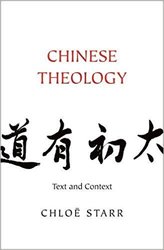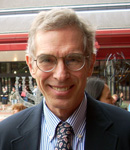 Chinese Theology: Text and Context, by Chloë Starr. New Haven: Yale University Press, 2016.
Chinese Theology: Text and Context, by Chloë Starr. New Haven: Yale University Press, 2016.
Most books on Chinese Christianity try to trace its history, focusing on key people, events, and movements. While Chloë Starr does not neglect these, she highlights something that most historians neglect: the theology that arose from different contexts expressed the thought and struggles of influential leaders, and shaped the ways that Christians responded to their situation.
In this brilliant and important book, a learned and very accomplished scholar introduces the reader to key writings by both Roman Catholic and Protestant thinkers, from Matteo Ricci up to the present. Starr adopts a distinctive approach by focusing on texts in their contexts.
That is, she carefully examines representative texts and shows how these reflected the literary tradition, church debates, and especially the political and social conditions that framed and informed both their content and form. The author uses this method because theology has always been dominated by written texts and because Chinese have always reverenced texts. Her own studies in Chinese literature have alerted her to the ways in which the tradition of commenting on the Classics has guided even Christian writers to employ certain terms, allude to previous texts, and express themselves in long-established genres.
The result is a kind of “theology” that does not resemble the usual tomes of Western Christianity, in that it is not systematic. Indeed, Starr believes that really “Chinese” theology will never look like its “Western” counterpart, because authentic Chinese Christianity will reflect China’s unique literary, cultural, social, and political contexts.
Such a theology results from a long process, of course. Missionaries translate foreign works into rudimentary Chinese; as their skill and knowledge grow, so do both their Chinese writing and their ability to adopt indigenous styles and literary forms; finally, Chinese Christians take up the challenge of composing works that speak from and to their situation in a truly “Chinese” voice.
Starr traces this logical trajectory from the earliest Jesuit publications to the versatile writings of Li Jiubiao and his brother Li Jiugong in the seventeenth century and then to Xu Zongze’s articles and “jottings” in the twentieth century.
On the Protestant side, we wait until the twentieth century for Chinese Christians to begin publishing. Like the earlier Roman Catholics, they too must respond to the challenge of how to be both “Chinese” and “Christian.” Especially in the turbulent era of the 1920s and 1930s, when the old Confucian system was dismantled and discarded, science and democracy ruled public discourse, and powerful anti-foreign impulses developed into a virulent Anti-Christian Movement, Christians had to answer charges that they were both unscientific and unpatriotic.
Starr devotes the bulk of this volume to a close reading of major works by a few leading Christian intellectuals: The Life of Jesus, by Zhao Zichen (T.C. Chao); Christianity and Chinese Culture, by Wu Leichuan; and the early sermons and articles by Ding Guangxun. In each case, she bends over backwards to explain why these men employed both traditional Chinese forms and non-traditional “Christian” content to answer critics and make a case for a truly indigenous Chinese Christianity. While noting their theologically “liberal” and even heterodox beliefs, she gives full weight to their intentions to be both “Chinese” and “Christian.” Thus, her exposition of the early writings of Ding Guangxun and then some of his later statements highlight his effort to create a space for the Christian church within an explicitly, and often hostile, Communist state.
Along the way, she describes the immense challenges these people faced as they tried to write in a way that reflected their Christian faith in an authentic Chinese style, and respond to constant criticism by non-Christians, secular and Marxist propaganda, and government pressure, repression, and even persecution. A separate chapter on “State Regulation, Church Growth, and Textual Profusion,” provides a beautifully nuanced and mostly fair account of the interplay between government policy, both official and unofficial church growth, and the various forms of writing that resulted from this enormously complex combination of disparate factors.
The last chapter might seem at first to make a sharp break from those that precede it, since Starr showcases the vibrancy and “profusion” of writing in the unregistered churches by looking at the popular songs of Liu Xiaoming and blogs of two intellectual pastors, Wang Yi and Yu Jie. She demonstrates, nevertheless, that they, too, employ familiar Chinese themes and styles. Liu’s songs evince a strong “patriotic” sentiment, in the sense that they express a deep love of China as a country and a strong sense of its historic destiny, without a necessary attachment to the current regime. Wang and Yu, on the other hand, voice incisive criticism of the Party-state and call for greater freedom.
Evaluation
You can see why Chinese Theology has garnered praise from distinguished scholars. Starr writes deft, elegant, and precise prose that flows from wide reading and incisive analysis. She achieves her stated goal of showing how important texts have reflected their contexts. In particular, she explains why she thinks that truly “Chinese” theology will not be “systematic.”
Without disparaging the value of the book for scholars in the Western academy, I must altert potential readers to a few aspects of it:
- This is a dense and difficult volume, meant for those with advanced knowledge of Sinology, Chinse Christianity, and modern European theology and liteary criticism.
- Starr admits that she defines “theology” very broadly. That is why you find so many pages devoted to writings that would not qualify as “theology” in the usual sense.
- More than that, she gives extensive coverage to Yang Huilin, who adopts a similar view of “theology” and writes from an explicitly non-Christian viewpoint.
- Chinese Theology includes almost no detailed study of evangelical theology produced in China. Thus, though Wang Mingdao and Ni Tuosheng (Watchman Nee) feature in the narrative, there is no exposition of Wang’s sermons and articles or of Ni’s published work, The Spiritual Man, not to mention the collected sermons that have appeared since his death. The important early twentieth-century evangelical Jia Yuming, who produced a six-volume work called The Essential Meaning of the Bible, does not even receive mention.
- She has allowed her thesis—that Chinese Christians must use native literary forms and thus will never write anything that resembles “Western” systematic theology—to exclude anything that does not fit her framework.
- That means that she entirely overlooks the massive six-volume Systematic Theology and eight-volume Comprehensive Apologetics of Zhang Lisheng (Lit-sen Chang), who wrote during the twentieth century. Zhang’s writings are replete with thoroughly Chinese idioms and expressions, but he structures his treatments in a logical, recognizably “traditional” and “Western” manner.
- She also fails to discuss Zhang Lisheng’s highly pertinent Critique of Indigenous Theology, which directly challenges the projects of people like Zhao Zichen and Wu Leichuan. (See Wise Man from the East: Lit-sen Chang (Chang). Critique of Indigenous Theology. Edited and translated by G. Wright Doyle.)
- Chinese Theology ignores a half-dozen writers from Taiwan, Hong Kong, Southeast Asia, and North America who have published volumes of Sytematic Theology. One recent example is Wu Daozong, the newly-installed president of Singapore Baptist Theological Seminary.
To be sure, the author admits in her Afterward that her book “has inevitably left unexplored, and undertheorized, alternative channels of Chinese theology, including more influential ones in numeric or eccesial terms.” (282) This honest, though belated, confession of incompleteness is characteristic of the author’s combination of wide knowledge and passion for balance.
That is why, judged on the basis of the author’s explicitly limited aims, Chinese Theology may be considered a success.
An expanded version of this review can be found on the Global China Center website.
Our thanks to Yale University Press for providing a reviewer's copy.

G. Wright Doyle
G. Wright Doyle is the director of China Institute (www.reachingchineseworldwide.org) and Global China Center (www.globalchinacenter.org), the editor of Biographical Dictionary of Chinese Christianity (www.bdcconline.net), and co-editor of Studies in Chinese Christianity, published by Wipf and Stock. For more on effective ministry among Chinese, see Reaching Chinese Worldwide, by G. Wright Doyle.View Full Bio
Are you enjoying a cup of good coffee or fragrant tea while reading the latest ChinaSource post? Consider donating the cost of that “cuppa” to support our content so we can continue to serve you with the latest on Christianity in China.